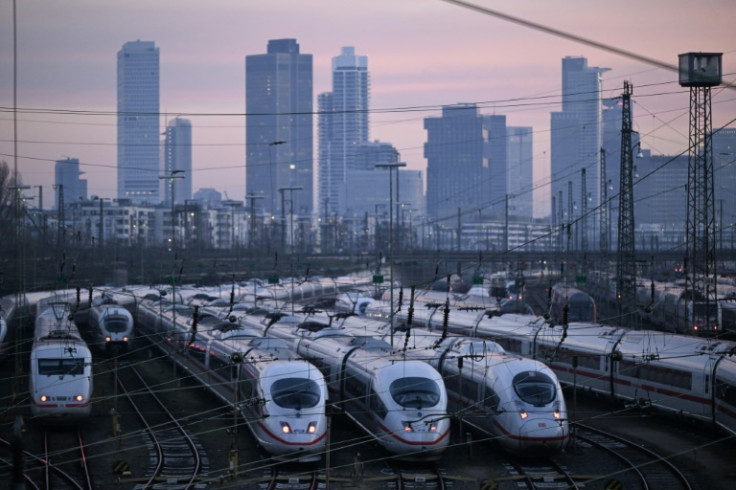
German train drivers will stage their longest-ever walkout with a six-day strike this week, their union said Monday, escalating a dispute with rail operator Deutsche Bahn over pay and working hours.
The walkout called by the GDL union is to start at 2:00 am (0100 GMT) on Wednesday for passenger services and last until 1700 GMT on Monday. For cargo services, the stoppage will begin earlier, at 1700 GMT on Tuesday.
State-owned Deutsche Bahn accused the union of "acting absolutely irresponsibly".
It will be the fourth strike by GDL since November as the union pushes its demands for higher salaries to compensate for inflation, as well as a reduced working week from 38 to 35 hours with no loss in wages.
A three-day walkout earlier this month already caused travel chaos for thousands of passengers, with 80 percent of long-distance trains not running.
GDL said it had rejected Deutsche Bahn's "third and allegedly improved offer" and decided to call a fresh strike because bosses had shown "no sign of a willingness to reach an agreement".
Deutsche Bahn said the latest strike would be the longest in its history, breaking the record of a May 2015 walkout called by GDL that lasted around five days.
Deutsche Bahn criticised the renewed call to industrial action, saying it had offered pay rises of up to 13 percent and a one-off inflation bonus, as well as the chance to reduce the working week by one hour from 2026.
"The GDL is exacerbating the conflict," a spokesman said.
"Anyone who doesn't even come to the negotiating table with a new offer of up to 13 percent and the possibility of a 37-hour week with the same salary is acting absolutely irresponsibly."
The company said it expected this week's strike to "again have a massive impact" on German rail transport.
Passengers who had already booked to travel during the strike period would have the option to bring their trips forward or delay them, it said in a statement.
The disruptions to freight traffic meanwhile are likely to deal another blow to Germany's struggling economy, which is already facing supply chain upheaval as a result of shipping delays due to tensions in the Red Sea.
Transport Minister Volker Wissing slammed the GDL's latest strike announcement.
He said he had "zero understanding for this type of collective bargaining" and denounced the "increasingly destructive" nature of the talks between GDL and Deutsche Bahn.
GDL chief Claus Weselsky was not "doing himself or his union any favours with this style", Wissing told broadcaster ZDF.
Weselsky for his part said the union would return to the negotiating table only once Deutsche Bahn agreed to discuss "all the points we are demanding", in particular a "mandatory reduction in weekly working hours".
A 35-hour week along with higher pay was necessary to make the job of train driver "more attractive" to young people and address a persistent shortage in skilled workers, he told a press conference.
Deutsche Bahn last year also clashed with the EVG rail union, which represents around 180,000 non-driver rail personnel, reaching an agreement in late August.







